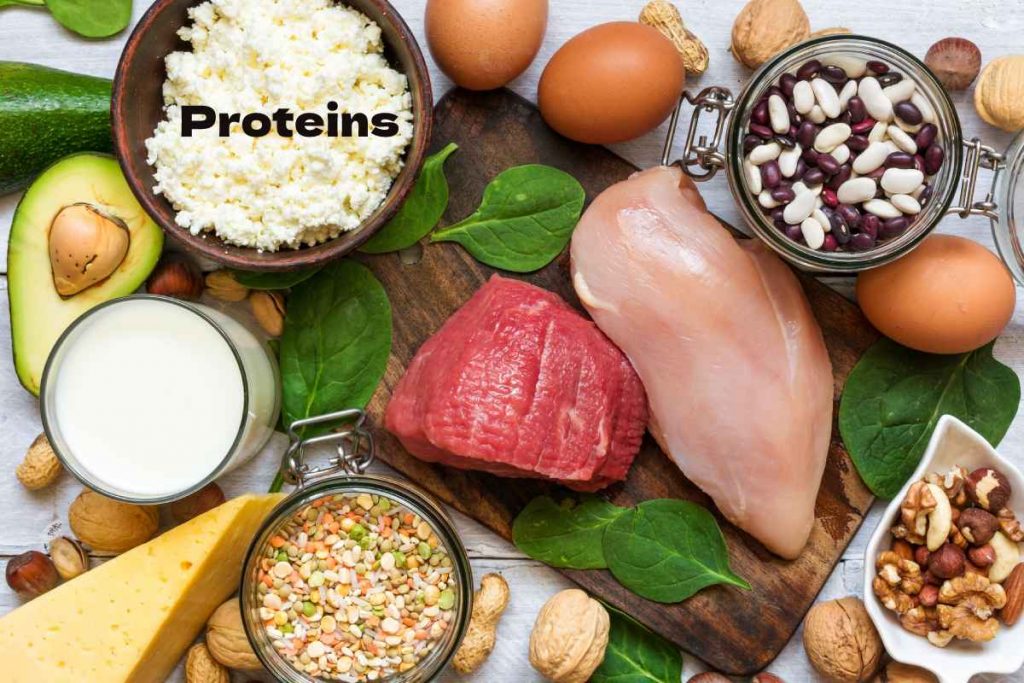Table of Contents
Definition
Proteins are central compounds with many functions, found in all tissues and part of every process that occurs in the body. Protein consists of amino acids in different formulations, each with other functions.
Some of these amino acids are possible for the body to produce, but the basic ones must be consumed from nutrients.
What are the Optimal Proteins?
Consume protein, from:
Plant sources (e.g. nuts and legumes).
Whole eggs and dairy products.
Meat from whole and low-fat pieces.
Fish (preferably deep-sea fish) contain high amounts of omega-3.
Soy consumption should be taken care of in moderation, and beware of excess salt and fat.
Recommended Amount of Protein
Specific amounts of protein should be consumed daily, as follows:
Protein for the Average Person
The amount of protein to be eaten during the day to avoid deficiency is at least 0.8 grams per kilogram of weight. That is, a healthy person weighing 75 kg needs at least 60 grams of protein.
When you eat about 100 grams of chicken breast at lunch, we cover the minimum required. Of course, if this is not in cases of extreme hunger, there is no problem with the consumption of the minimum required.
Protein for a Vegetarian Person
Within the vegetarian diet, there is no problem meeting the requirements, but you should know how to behave. It is essential to know the following things:
There is little protein in all foods you know are vegetarian, like sliced bread, legumes, and nuts.
Analysis of protein from a vegetarian is faster.
Plant protein is often healthier because it contains much less fat than the protein of animal origin.
Consuming plant protein sources makes you get less protein for the amount of food consumed in a meal.
Protein for the Sportsperson
These are the Recommended Amounts for those Who Exercise:
Usually, active people who train need between 1-1.2 grams of proteins per kg of weight and train three times a week unprofessionally.
Active people have the required daily protein intake of about 1.6 grams per kg of body weight.
People who are particularly active and professional or semi-professional athletes need 2 grams per kilogram of body weight.
Important: balance between proteins and carbohydrates
The amount of protein should be accompanied by appropriate amounts of carbohydrates and fat to be better absorbed. Otherwise, the body uses proteins to complete the deficiency and gets rid of the excess through the kidneys.
We reassure people who exercise that protein consumption of 1.4-2 grams per kilogram of body weight is leading professional recommends sports nutrition bodies and is completely safe.
Recommended Proteins and Supplements for Athletes
BCAA is an amino acid that research has shown to have the ability to improve workout results as well as improve the body’s ability to recover after exertion. These are the best, worst sources of BCAA:
the best is:
Filtered and isolated cheese serum protein.
Unfiltered cheese serum protein.
the worst is:
egg protein (albumin).
Milk protein (casein).
Soy protein.
What about the eggs?
Here you should be aware of a range of things:
Egg consumption is ideal for athletes only when eating the whole egg, yolk, and white. Although it has a high concentration of fat and cholesterol, the combination of protein without yolks is incomplete.
Consumption of egg protein as an additive is not recommended because of its sensitivity to pollutants.
It recommends that non-professional athletes consume regular eggs with a glass of milk, which will undoubtedly meet their needs.
Protein Caveats and Damage
We should remember that the body has an incredible ability to deal with increased protein consumption and to match kidney function, but:
Overconsumption without any additional training is not ideal.
People with kidney disease or high blood pressure should be wary of eating protein and consult with a specialist to balance protein amounts in their diet.
What About Protein Diets?
Protein-rich diets such as Atkins and HEPA diets have become very popular and are very beneficial for weight loss, but it is essential to take care of the following:
Be careful not to continue this diet.
A protein-rich diet indeed causes a rapid drop in weight, but if you don’t choose this path as a lifestyle, the evidence suggests that the people who follow it. And also, stop suddenly gain weight quickly.
Protein-rich foods, which account for about 30% of daily consumption, are very useful in reducing the incidence:
Heart disease.
Breast cancer.
Various malignant diseases.
Symptoms of the menopause.
Cholesterol.


